A Eulogy for Everything We Never Were (and Never Will Be Again)
The story of how writing a screenplay about 'The Diary of Anne Frank' convinced me it was time to leave America for good
It’s April 22nd, 2016
I’m standing on the third floor of a building in Amsterdam, and I am having trouble breathing.
My wife and I are on vacation in the Netherlands, along with our two-year-old son, but we’ve chosen to take this specific tour separately for fear our little one will disturb others in a place that feels so sacrosanct. She’s outside with him right now, strolling along the Prinsengracht, as I try to imagine what it was like for eight people to hide inside four small rooms with no access to the outside world, not even sunshine through windows, for two excruciating years of the country’s occupation by Nazi Germany.
At the moment, I’m watching a teenage girl – or at least I am in my mind’s eye – fill up pages of one of the notebooks that her father Otto would eventually edit and publish as The Diary of a Young Girl. Most of us know this book today as The Diary of Anne Frank. Its author died from typhus on approximately March 31st, 1945 while interred at the Bergen-Belsen concentration camp, one of the approximately 50,000 people who perished there between 1943 and 1945.
Of the seven other occupants of “the secret annex” — as their hiding place is often referred to as — only Otto Frank would survive the Nazis’ attempt to mass-murder Europe’s Jewish population into extinction.
It's today
I’ve started and restarted this essay at least a dozen times now. Each time, I decide it’s becoming a polemic. I don’t do polemics. More, I worry I’m conflating the tragedy that befell the occupants of the so-called “secret annex” with my own privileged angst and anxiety about the United States. But at the end of it, there is no pretending away the fact that my visit to Amsterdam – and specifically Prinsengracht 263-267, what we call the Anne Frank House today – set in motion a chain of events that compelled me to abandon the country of my birth for good. I’ve wanted to tell this story for a long time now - about how creating a piece of art changed my life far more than success as an artist ever has. Because the U.S. is staring down another divisive presidential election, one that’s already drawn blood, it seems like a good time to finally give it a form.
It’s April 22nd, 2016
After I finish my tour of the Anne Frank House, I meet my wife at the famous Pancake Bakery just down the canal. We’ve been looking forward to eating here, as it allegedly has some of the city’s best pancakes. But when I slide into the booth next to my son, I can feel how distant I am from them both. My wife notices it, too. I’m still in the secret annex.
“I have an idea for a script,” I say, my voice shaky.
And then, I proceed to lay out a feature film about Otto Frank’s return to Amsterdam and attempt to come to terms with his family’s deaths — and perhaps even his part in them — through his daughter Anne’s diaries. I include the film’s opening scene, every major turn, its midpoint and low point, and the final scene. I’m channeling something here, or however you want to describe it, and my wife can see it on my nervous face.
“And I’m going to call it The Secret Annex,” I tell her.
It’s November 11th, 2016
It’s three days after Donald Trump’s election to the White House, and my father has called me with tears in his voice. I’m sitting in my Prius, outside my house. “Is it true?”
It's April 30th, 1941
Otto Frank writes from Nazi-occupied Amsterdam to his friend Nathan Strauss in New York, “I am forced to look out for emigration and as far as I can see the USA is the only country we could go to.”
He’s been working on this plan for three years, trying to find a way, any way, to escape the war ripping Europe apart. His family had already been forced to do this once, back in 1933, when it fled Germany – part of the exodus of 300,000 Jews who fled the country between 1933 and 1939. While the U.S.’s refugee policy toward Jews is anything but generous — many might say aggressively indifferent" — the current delay is instead because of freak bad luck. On May 14, 1940, the Luftwaffe bombed the U.S. consulate in Rotterdam during Germany’s initial invasion of the Netherlands and, with it, the Franks’ first application.
It's January 27th, 2017
The new United States president signs Executive Order 13769, which he calls a “Muslim ban”. It slashes the number of refugees permitted to enter the country every year, targeting those fleeing from Middle Eastern and African countries where Islam is the primary religion. Some 60,000 visas are revoked, as a result. There will be no way of ever knowing how many deaths result from this xenophobic decision that conservative politicians quickly celebrate.
So much for the words of Emma Lazarus’s sonnet “The New Colossus”, which have long been found inside the base of the Statue of Liberty:
“Give me your tired, your poor,
Your huddled masses yearning to breathe free”
It’s July 7th, 2016
When I deliver The Secret Annex’s first act to my manager, he tells me this screenplay is what the world desperately needs right now. I’m not sure if he’s concerned as much with the world as he is with the United States, though.
The presidential election now in its final months, a contest between Democrat Hillary Clinton and Republican Donald Trump, has almost everyone I know terrified. For a long year, we’ve all watched people we thought we knew — people we believed were decent and loving — turn into cruel parodies of themselves on social media and at family events. White supremacists are marching in America’s streets, testing the limits of free speech. Nazis are throwing up stiff-armed salutes to Trump. Many who once pretended to be “modern men” now casually call one of the most qualified presidential candidates in US history “a bitch” in public forums – the same men, not uncoincidentally, who don’t seem concerned about a recording of her opponent bragging about sexually assaulting women.
The thing is, none of this surprises me. In fact, it’s always felt inevitable to me.
It’s the late-1980s
My white father tells me that people were still burning crosses in Macomb County, Michigan — where we live — until half a decade ago. This tracks for my young brain because, with few exceptions, people around me often talk about nearby Detroit as if it were a zoo. By the time I reach high school, I understand that Detroit’s police department, which is almost entirely white in a city that is almost entirely Black, is there to keep the “animals” from escaping their cage. For the rest of my life, I will understand the United States’ police departments to all be racist institutions.
A random sampling of things I’ve heard Michigan police officers say throughout my life
When I am seventeen, one refers to Black children he has to deal with on his beat as n-glets.
A police chief tells me he regularly pulls Black people over passing through his town because he knows all the Black people who live there and any others are probably trouble. I note how he shares this as if it’s just common sense.
A popular debate I witness on several occasions starts, “Which is worse, a woman cop or a Black cop?”
A perennial observation: “They should just drop a nuke on this city.”
Post-9/11, others complained that Detroit cops weren’t being allowed to permanently “fix the Muslim problem Dearborn has.”
It’s June 15th, 2016
I’ve finished two drafts of The Secret Annex’s first act at this point, unable to think about anything little else. My research leaves me constantly agitated and anxious, conditions exacerbated by coverage of the current United States election cycle. I’ve just added some changes to a pivotal scene at the first act turn. Otto Frank, typically soft-spoken, becomes angry with Miep Gies. Miep is one of the helpers who kept his family alive for two years in hiding.
This scene rattles me because Anne isn’t “right there” despite how effective I find this exchange is on the page. She was dead by this point. Almost certainly, her small, fragile corpse had been incinerated in a furnace not long before Bergen-Belsen was liberated.
It’s October 24th, 2018
I’m standing alone inside a crematorium at the Dachau Concentration Camp. I’ve been here for at least ten minutes, lost in time. It’s a cold, gray, misty day and I’m one of only a relatively small number of people visiting the historical site today, which has made the experience all the more unsettling.
Over the walls, I can hear the town of Dachau. I’d always imagined the camp itself was outside town, in the countryside somewhere with fewer eyeballs around it, but that’s not the case at all. It’s right in the middle of everything. Everyone in Dachau knew. Everyone who lived in the vicinity of every other camp the Nazis erected in Europe knew.
Their pleas of ignorance in the years that followed the war were bullshit.
It’s June 18th, 2018
I’m looking at photos of migrants huddled in cages inside a U.S. Customs and Border Protection facility in Texas. There are children in there, locked up like dogs. In fact, the inmates — for that is what they are — refer to this place as La Perrera, a dog kennel in Spanish. Former First Lady Laura Bush refers to it as an internment camp in an interview.
Barack Obama built this facility and installed these cages; Donald Trump weaponized them as part of his “zero tolerance” border control policy; Joseph Biden will continue to operate facilities similar to this one.
It's today
As I write, I am stringing together events across nearly a century. Everything is connected, I’ve come to accept, even if these connections are thin and wispy and entirely comprised of the pixie dust that makes up my imagination. But it feels as if I’m losing control of my own essay. History is so big; it seems determined to swallow me, you, all of us up. Maybe it’s always been like this, maybe I should rethink my approach, maybe I should scrap this essay altogether and go play with my kids.
All I can think about is the polls that continue to show Kamala Harris, a typically flawed Democratic candidate, polling neck-and-neck with a convicted felon, rapist, and accused insurrectionist currently running on throwing out the U.S. Constitution, punishing political enemies and whomever else he feels like, and mass-arresting and deporting millions of those he deems to be foreigners – and half of voters think this sounds like a great idea for their country’s future.
In other words, nearly half of U.S. voters would prefer fascism over sharing what they perceive to be “their country”.
It's December 7th, 1941
The Imperial Japanese Navy Air Service stages a surprise attack on Pearl Harbor in Hawaii, killing 2,403 U.S. personnel. The next day, the United States declares war on the Empire of Japan and, at last, its allies Germany and Italy. Transatlantic shipping channels are immediately locked down, making it impossible for Otto Frank to get his family out of Europe.
Any chance the Franks had of escaping both the war and the Nazis’ plan to wipe out the continent’s Jews has disappeared.
It’s June 15th, 2016
The Secret Annex script shouldn’t exist, maybe that’s what bothers me most about writing it. In a different dimension where the United States’ antisemitism wasn’t so pervasive in the 1930s and ’40s — you might even call it a “Jewish ban”, a predecessor to Donald Trump’s “Mulsim ban” — Anne Frank and her family would’ve survived the war in New York along with hundreds of thousands of other refugees fleeing the Nazis’ extermination schemes.
In reality, most of these Jews (and many other marginalized and vilified peoples) were murdered as Anne was. As her sister and mother were. As their friends the Van Pels and Fritz Pfeffer were. All because the U.S. chose to pretend it didn’t know what was happening to all of them. The country has a wonderful track record at pretending away inconvenient genocides. Most of the world does, as it turns out.
It's today
Shit, this is turning into a polemic.
But I also struggle with how critical I am being of a country in the midst of an election cycle that will determine whether it remains a democracy. When many require hope, is it fair to openly discuss my despair? I also have to be aware that for seven years now, many American friends and family members have experienced my story — the decisions my family made following the 2016 U.S. presidential election — to be in some way an act of silent judgment of them and their own decisions. Yet there is no way of getting around the fact that this is still my story, that I do not judge others because they have not made the same decisions as I, nor do I believe my decisions should suggest I don’t care what befalls the United States. The U.S. is home to many people I love dearly. Many around the world look to it for inspiration, for protection, for sanctuary. It cannot — it must not — fail entirely.
It’s November 11th, 2016
“Is it true?” my father asks me.
It's March 10th, 2011
I’m watching the Nazi documentary Triumph of the Will, trying to understand its influence on cinematic representations of fascism over the years. For example, George Lucas drew from director Leni Riefenstahl’s imagery of Nazi rallies when depicting the Empire in his Original Star Wars Trilogy, but especially in his Prequel Trilogy.
The documentary features many fiery speeches, including by Adolf Hitler, but the film can largely be experienced as images and sound alone. It’s some of the most artful propaganda ever produced. It relentlessly works on you, epic shot by epic shot, forcing you to feel part of the mass rallies supporting the Third Reich whether you want to be or not. You want to belong, don’t you? Look at all these people, united as one, working toward a common purpose, toward making Germany great again.
And then it happens.
In the film, thousands of arms snap up in a stiff-armed salute to the Fuhrer – and I feel my arm move ever so slightly.
Unconsciously, something inside me told me to go along with the mob, to join it, to give in.
I feel sick to my stomach at what just happened. I’ll never forget this feeling, always afraid of it in myself and especially others. What would happen to people after months, or even years of exposure to this kind of social manipulation?
It’s any month of 2016
Every one of Donald Trump’s rallies seems equal parts Nazi beach party, WWE event, and Paul Verhoeven satire. Leni Riefenstahl would laugh herself silly at what these people have done with her legacy of fascist myth-building. And yet, it’s also working thanks to white Evangelicals’ willingness to privately and publicly embrace a man who represents everything they claim to hate if it allows them to put women back in the home where they belong and Black Americans back in their place as third-class citizens behind even white housewives. This is about restoring what they perceive to be natural order to society.
It’s today
Donald Trump has announced a major new rally to support his quest to return to the White House. It’s scheduled for October 27th at Madison Square Garden. This makes no political sense, as the arena is at the heart of Manhattan, in a state he has no chance of winning. But it does make a different kind of sense when you consider the symbolism behind it.
It’s February 20th, 1939
Seven months before Great Britain and France declare war on Nazi Germany, more than 20,000 people cram into Madison Square Garden for a “pro-Americanism” rally. At center stage is a towering image of George Washington. The Founding Father is flanked by swastikas.
Because this is really a Nazi rally.
When this event is discussed decades later, what is often overlooked is that there were a hundred thousand anti-Nazi protesters outside who were terrified of Adolf Hitler’s fascist ambitions for the world. In some ways, it presages what will happen in Skokie, Illinois in 1978 when a small Nazi rally will be drowned out by a superior crowd of anti-Nazi protesters. But these David and Goliath comparisons of a few white supremacists being bested by a legion of decent Americans doesn’t hold up when you consider that America’s white-dominated industries and religious institutions in the 1930s, including Henry Ford and the Catholic Church, were largely sympathetic to and even championed Hitler.
It’s today
This cultural conflation of the Stars and Stripes, God, free market capitalism, and white supremacy is nearly a century old now. However, you might observe that this description is missing firearms. More recently, the 1970s and 1980s to be precise, guns became a fifth pillar of the U.S.’s conservative thinking. Hundreds of thousands of dead Americans later, many of them schoolchildren, most have no choice but to accept them as “just the way of things now”.
It's December, 2012
My father seems frustrated when I ask him why there’s a handgun in the same cupboard he keeps cereal bowls. The answer is obvious to him.
“You never know who’s going to come to your door,” he says.
It’s April 13th, 2023
Ralph Yarl, a sixteen-year-old boy, knocks on the wrong door in Kansas City, Missouri; he’s been sent to pick up his siblings. The 85-year-old white homeowner Andrew Lester never asks what Yarl wants; he points a gun at the Black youth, through the window, and shoots him in the face. As Yarl runs away, screaming, Lester warns him, “Don’t come here ever again!”
It’s 2020
As protests and so-called race riots rage across the United States in response to George Floyd’s murder by a Minneapolis police officer — but, really, the unpunished mass-murder of people of color by U.S. police — Americans buy a record 21.8 million firearms. The vast majority of these guns are purchased by white people; anything to protect themselves from the threat of the savage other, regardless of the consequences. Their irrational fear, fueled by racism and stoked by the media, is inadvertently arming domestic abusers, vigilante cosplayers like Kyle Rittenhouse, and future insurrectionists.
It's January 6th, 2021
A mob of supporters of Donald Trump, many of them armed – a sea of white faces, many of them clothed/painted in or waving the American flag – storm the U.S. Capitol Building in response to his call that they fight back against what he calls election fraud. Confederate flags and Nazi imagery are rife. Later, Feds will testify that they saw the Nazi salute being used, as well.
It's July 6th, 1942
Time for the Franks and their friends the Van Pels has run out. A carefully orchestrated plan is executed, to convince the Nazis that their families have fled the country. Instead, the two sets of parents and three children — and, later, another friend — move into the top three levels of the building where Otto Frank’s pectic and spice business, Opekta, operates. Their allies in their concealment are employees of Opekta. These “helpers”, such as Miep Gies, will keep them safe for the next two years.
It’s January 14th, 2017
I’m sitting on my couch, watching television by myself, when I get the call. My manager asks if I’ve seen Deadline. I jump to my feet at these words because they never mean something good. “Fox Searchlight just bought an Otto Frank spec,” he tells me. “It was a competitive situation, too. Looks like mid-six figures.”
Inside, I’m screaming as he says this. My response is more measured. “Fuck me,” I say.
Because The Secret Annex is almost finished — almost exactly as I pitched it to my wife in Amsterdam’s Pancake House — but it wasn’t expected by my producers for another month. This happens more often than you think; screenwriters pour everything they have into a project, only to get beaten to the finish line by a few months and sometimes even a day or two.
I’m not going to try to drag this out for drama’s sake. There isn’t a conventional happy ending here. I will go on to write my script anyway and it finds Oscar-winning fans who champion it, but there’s no getting around the competing project. Nobody wants to go near mine as a result, though we come close with a few big directors I admire. This devastates me for months, but the reality is that The Secret Annex eventually gets me new U.K. agents and helps me land almost every job I’m hired to write over the next few years.
But the writing of The Secret Annex has a bigger impact on my life than selling it ever could have. Because Otto Frank’s story has haunted me for months, ever since I left Amsterdam. It’s colored my every thought about the U.S. election last year and my deteriorating relationship with the United States. And it inadvertently helped my family make the biggest decision it’s ever made.
After I end my call with my manager, I look at the wall of boxes in which I’ve packed up most of our belongings that we intend to take with us…
It’s November 11th, 2016
“Is it true?”
It’s July 15th 1944
Anne Frank wrote the following in her diary on a Sunday twenty days before her family was betrayed:
“In spite of everything I still believe that people are really good at heart. I simply can’t build up my hopes on a foundation consisting of confusion, misery, and death. I see the world gradually being turned into a wilderness, I hear the ever approaching thunder, which will destroy us too, I can feel the sufferings of millions and yet, if I look up into the heavens, I think that it will all come right, that this cruelty too will end, and that peace and tranquility will return again.”
It’s August, 2016
As I work on The Secret Annex seventy-two years after Anne Frank wrote her often-quoted passage about hope in the face of darkness, I can’t stop thinking about what would’ve happened had Otto Frank and his family emigrated to the United States instead of the Netherlands in 1933. Or had the U.S. consulate in Rotterdam not been bombed by the Luftwaffe in 1940, destroying the family’s application and hopes of fleeing to the country as refugees from a violent, bloody conflict. Or the Japanese had waited six months longer to bomb Pearl Harbor, buying the family life-saving time to get out of Europe.
Of course, these are all random moments in time that, with but the most minor of temporal breezes, could’ve produced different results for the Franks – the same of which could no doubt be said about millions of others who died in World War II. Or the scores of desperate refugees around the world since then who have tried to flee similar wars and oppression only to be condemned to possibly die by xenophobic policies in the U.S., Europe, and other Western nations.
I keep asking myself as I write, “How do you know it’s time to get your family out? And what happens if you miss your chance like Otto Frank did?”
It’s August 4th, 1944
It’s unlikely anyone will ever know for sure who betrayed Otto Frank and the rest of the occupants of the Secret Annex. The Gestapo raids the warehouse on the Prinsengracht in the morning and arrests everyone present (including the helpers, with one exception). Anne Frank is sent to Bergen-Belsen, a hard labor concentration camp, along with her sister Margot and their mother Edith.

It's August 2016
I don’t remember the exact date, though I wish I did given how momentous this day has become in my family’s life. Nor do I recall how the conversation began, though I expect rather slowly. We probably didn’t even understand what was happening. But knowing how my wife and I discuss these things, it probably happened something like this:
I’m sitting in the kitchen, arguing about how broken many Americans really are and my worry that they might actually elect Donald Trump. My wife, an optimist like Anne Frank, is telling me that people in general deserve more credit than I give them. I assure her they most certainly do not, and I begin to hurl statistics at her to prove my point. This only annoys her, as it always does.
Somewhere in the conversation, I pivot to Otto Frank and his regret that he was unable to get his endless family out of the Netherlands before it became too late. I point out there’s no sense in waiting for the Nazis to be outside your door when you can see them coming on the news. In between suggesting I am being paranoid and hyperbolic, my wife likely asks something like, “What are you suggesting?” Or maybe she’s the one who suggests it and I’m misremembering it. Who knows now?
But by the end of the conversation, we make a mutual promise to leave America if Trump gets elected. I’m only half-American, and it’s been a long time since I felt at home here anyway. Neither of us believes Hillary Clinton losing is a serious possibility…or so we tell ourselves.
It’s November 8th, 2016 – Election Day
I have a crown on one of my molars, or at least I did until a few moments ago. I spit out the peanut brittle I was chewing and, amongst the candied debris, find a porcelain-covered piece of metal that looks something like a tooth. This will be relevant in a moment.
It’s August 7th, 1944
Miep Gies has been released by the Gestapo. She and fellow helper Bep Voskuijl return to the Secret Annex, where they discover Anne’s diaries and scattered papers. They collect them, intending to return them to Anne when the war is over, having no idea they will never see their young friend again.
It’s November 8th, 2016 – Election Night
Everyone around me is drunk and screaming. There are women in my kitchen, crying so loudly I can hear them in the living room over the news that Donald Trump is the next president of the United States. A couple storms out, furious, slamming the door behind them. All of this seems to happen in fast motion. Or maybe I’m moving in slow motion.
Because I’m the only one here who hasn’t been drinking. My missing crown has made it impossible; every sip is agony.
But I’m hurting anyway because I’m watching the U.S. as I know it — flawed and self-contradictory and occasionally beautiful — set in motion something I worry is irreversible…and I know that as soon as I wake up in the morning, I’m going to begin the process of putting my house on the market.
My family is moving overseas.
It’s today
My wife would tell this story of our decision to leave the United States differently than I do. The story as shared here is mine alone; she has her own motivations, some of which we share, some of which are very different. I distil my feelings on the matter this way:
I was tired of being afraid all the time and I wanted to raise my children in a country that at least imagined a future I wanted to live in.
My fear might seem irrational — in fact, many close to me have assured me it is — but I would argue otherwise. Choosing to live in a place where you feel unsafe as I did, threatened, anxious at all times — where you have to either inure yourself to the mass suffering of others less fortunate than you or go mad — sounds a lot more irrational to me. No election will somehow magically change this in my lifetime either. The fact of the matter is that my mother came to the U.S. in 1972, an immigrant from Australia. My great-grandparents came to the country on either side of the turn of the 20th century, all immigrants from Germany. Every one of them chose to start over in a foreign country because there was the promise of a better life waiting for them - a life better than the one they were leaving behind. I’m just keeping with this immigrant tradition.
To be excruciatingly clear here, I want — no, I need — the American experiment, as George Washington called it, to succeed. Too much is at stake, both domestically and abroad, despite the U.S.’ numerous, often lethal flaws. I stand by everyone who is fighting for that and understand their ongoing commitment despite their many disappointments in both Democratic and Republican-led administrations. But my relationship with the country is over now except for a disconcerting kind of nostalgia for an idea of what America is that I accept never existed, the tax laws that unfortunately bind me to it, and my right to vote which I still religiously exercise to protect others’ freedoms.
It’s May 15th, 1945
Otto Frank is aboard the steamship Monowai, on his way back to Amsterdam. He writes to his mother, unsure if she is even alive (I include part of this letter in The Secret Annex):
The closer we get to home, the greater our impatience to hear from our loved ones. Everything that's happened the past few years! Until our arrest, I don't know exactly what caused it, even now, at least we still had contact with each other. I don't know what's happened since then. Kugler and Kleiman and especially Miep and her husband and Bep Voskuil provided us with everything for two whole years, with incomparable devotion and sacrifice and despite all danger. I can't even begin to describe it. How will I ever begin to repay everything they did. But what has happened since then? … Only the children matter, the children. I hope to get news from you immediately. Maybe you've already heard news about the girls.
By the summer, he will learn that his wife and daughters are dead.
It’s November 11th, 2016
My father has called me with tears in his voice. I’m sitting in my Prius, outside my house, about to pull out after a long day of working on The Secret Annex — on a script that has changed my life in unexpected ways. I will never be the same.
“Is it true?” he asks me. “You’re going to move overseas just because of an election?”
I don’t want to have this conversation, but I’ve only just written a scene where Otto Frank learns how his daughter Anne died. “No, Dad,” I begin slowly. My face feels hot. “I’m moving overseas because you voted for a man Nazis support.”
“Bullshit,” he says.
“They attend his rallies. They salute him with a stiff arm. He calls them good people. Your father went to war against these kinds of people, remember that? They’re everything you taught me to hate. But you voted for the guy they wanted in the White House anyway.”
“I can vote how I want.”
“And now you’re going to have to live with the consequences of your actions,” I tell him. “Because your grandchildren are going to grow up in another country where, bonus, they won’t have to worry about getting shot in the face when they go to school. I’m going to do whatever I have to to keep my family safe from this insanity.”
If you’re an American citizen, I implore you to cast your vote for the greater good in the 2024 presidential election if you haven’t already. And wherever you live on this planet we all call home, please consider supporting the more than 120 million displaced people who inhabit it, 40% of which are children, through advocacy and/or donating to the United Nations Refugee Agency.
If this article added anything to your life but you’re not up for a paid subscription, consider buying me a “coffee” so I can keep as much of this newsletter free as possible for the dreamers who couldn’t afford it otherwise.
If you enjoyed this particular article, these other three might also prove of interest to you:

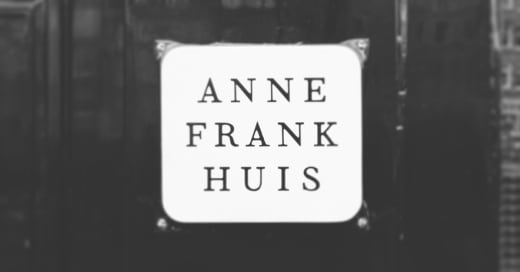



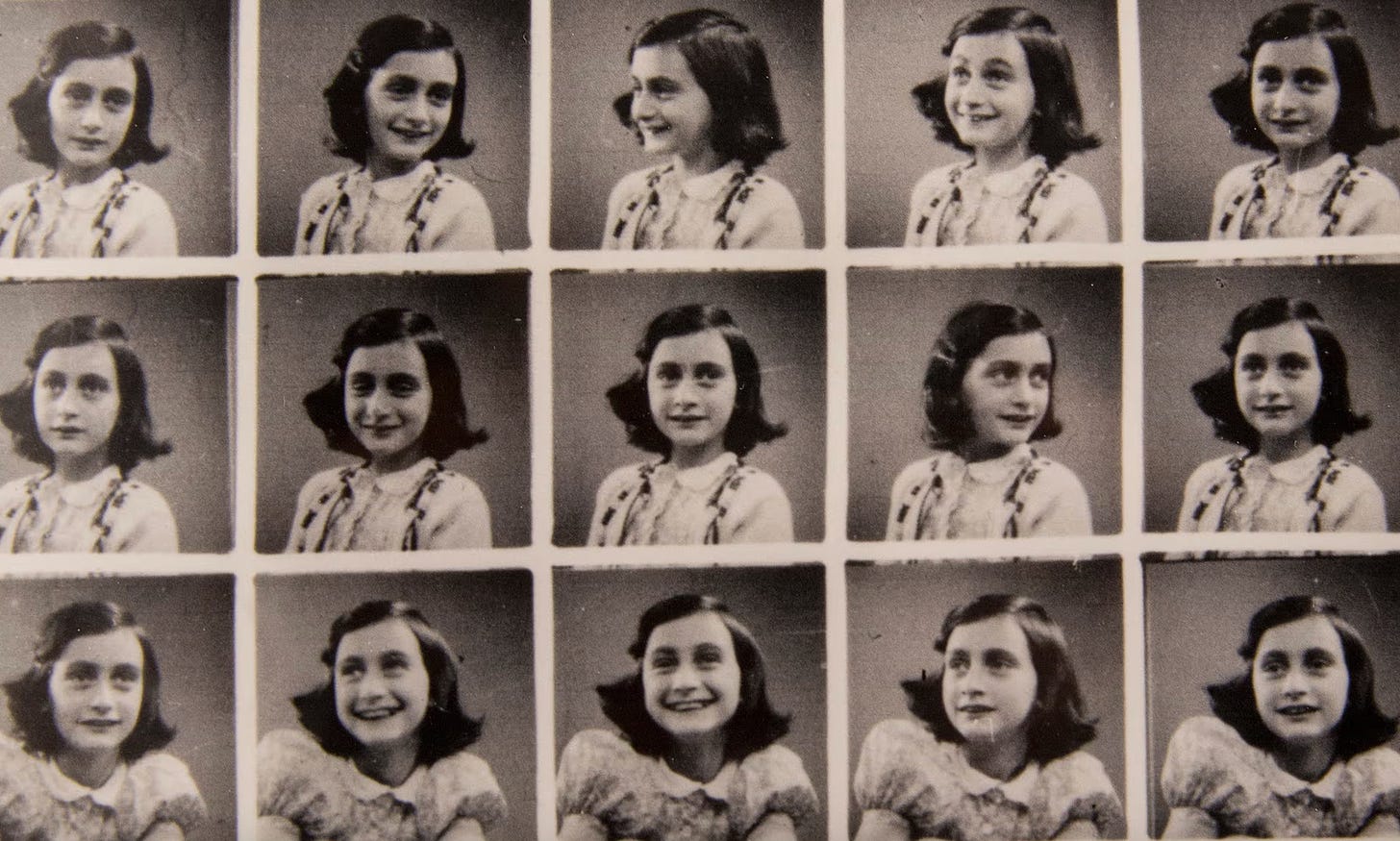
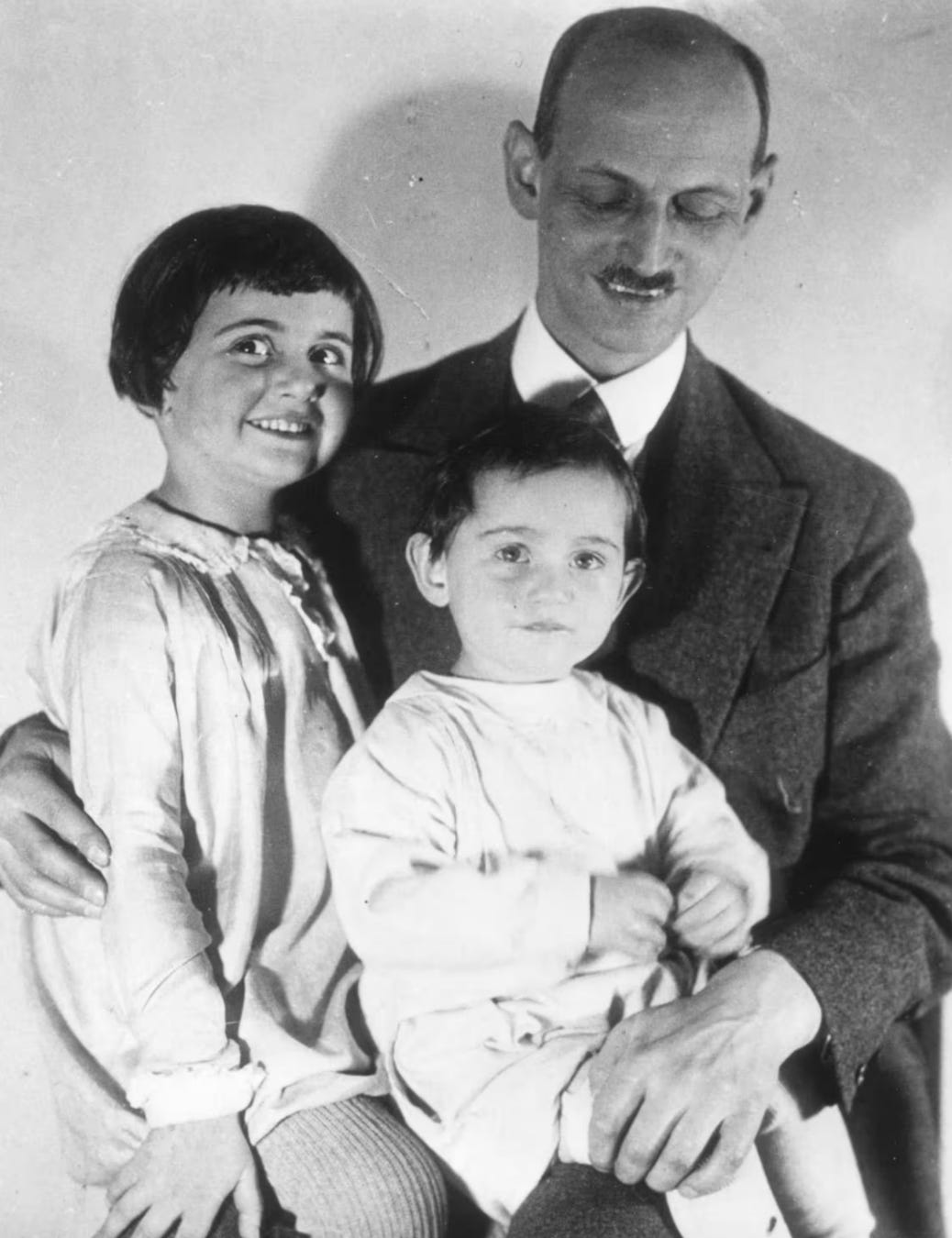
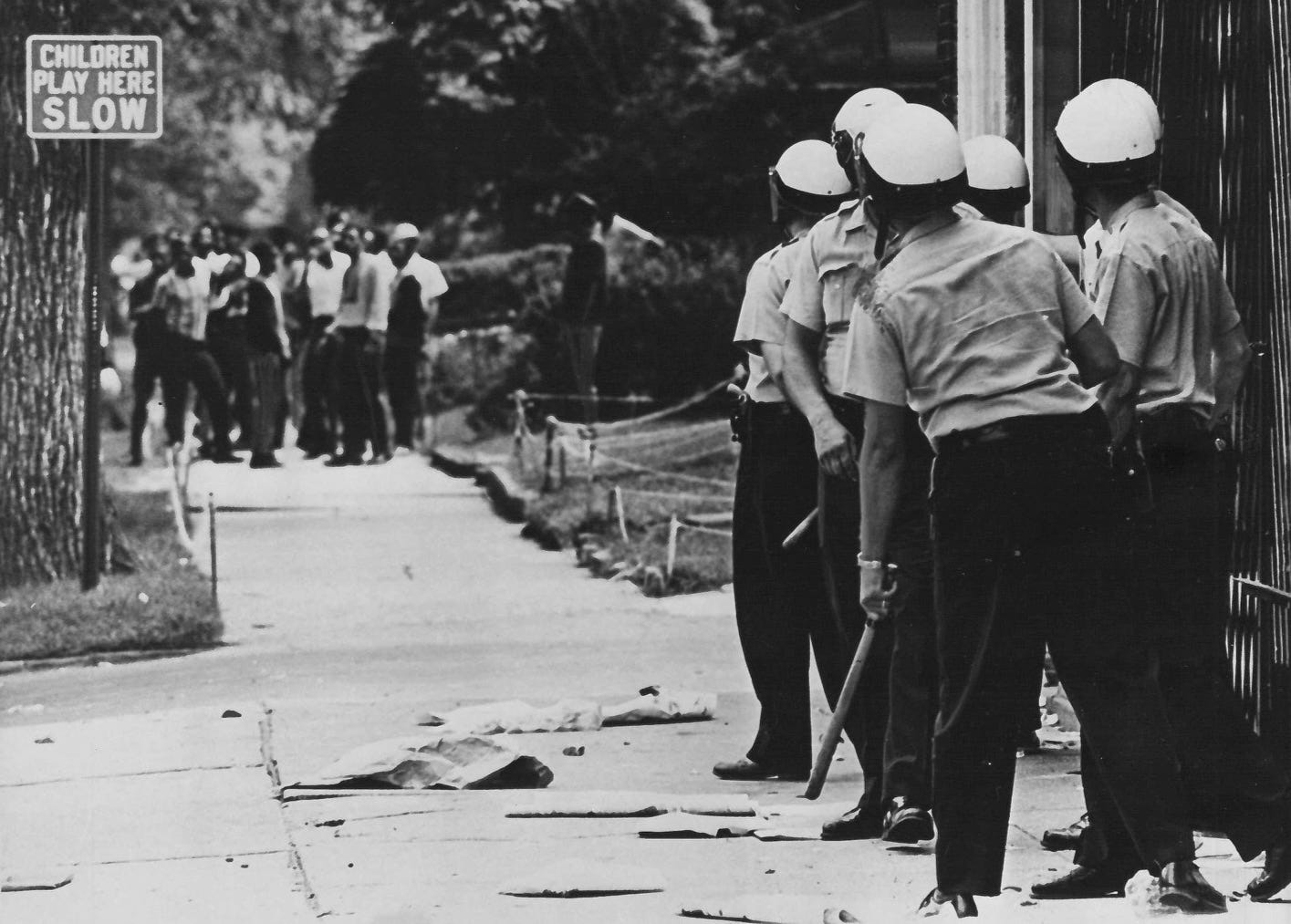
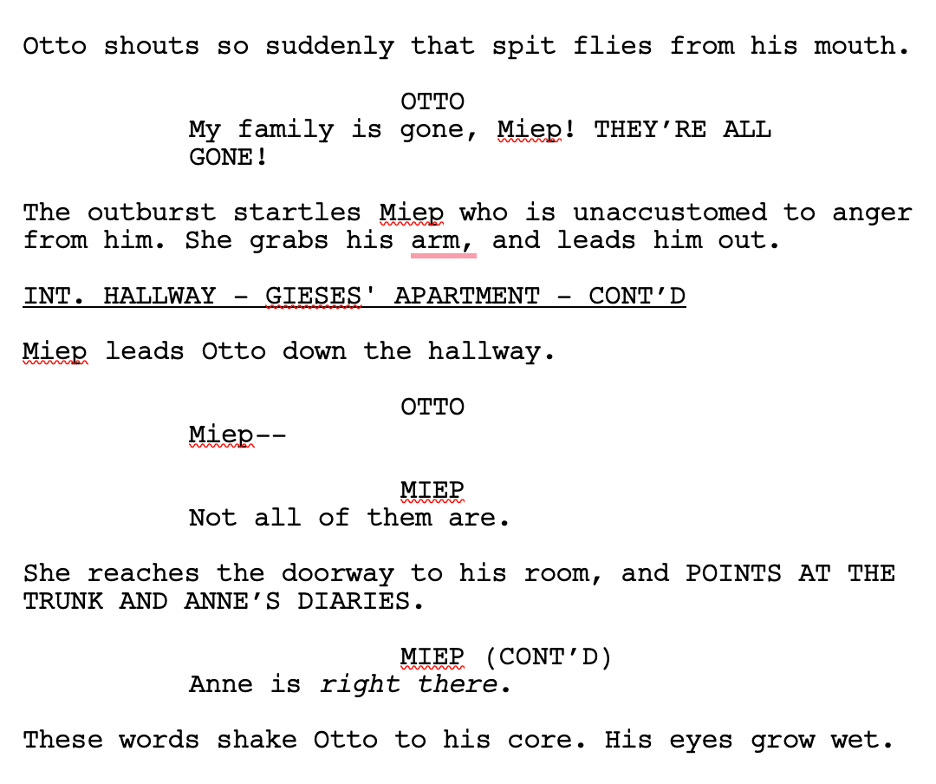
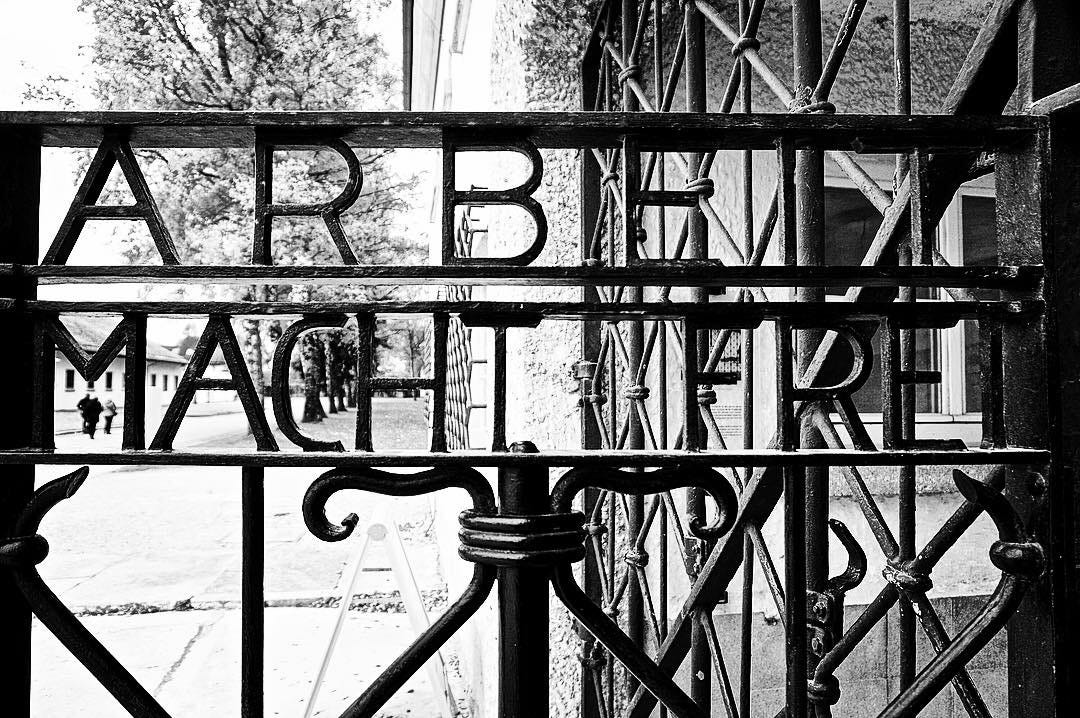
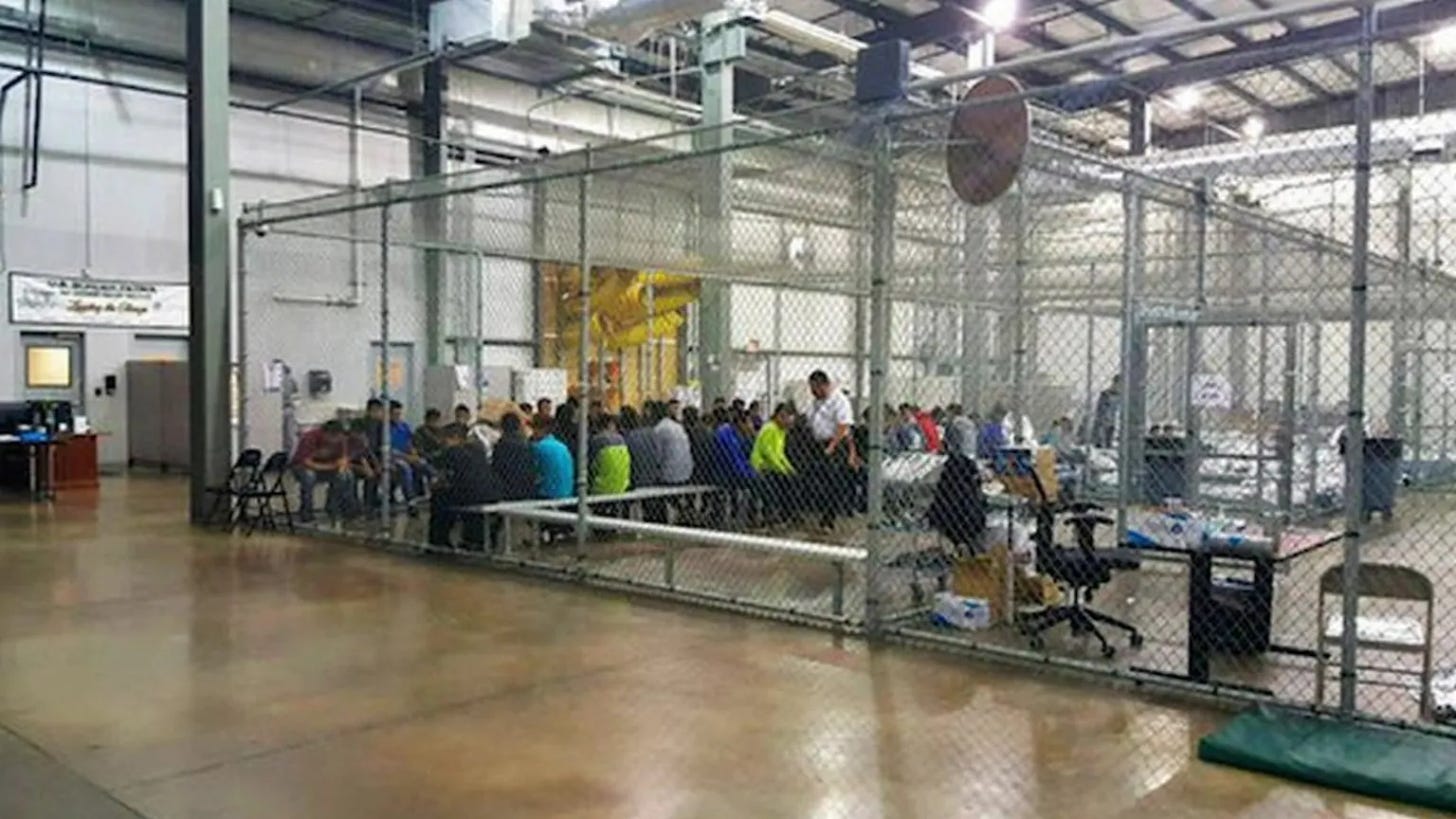
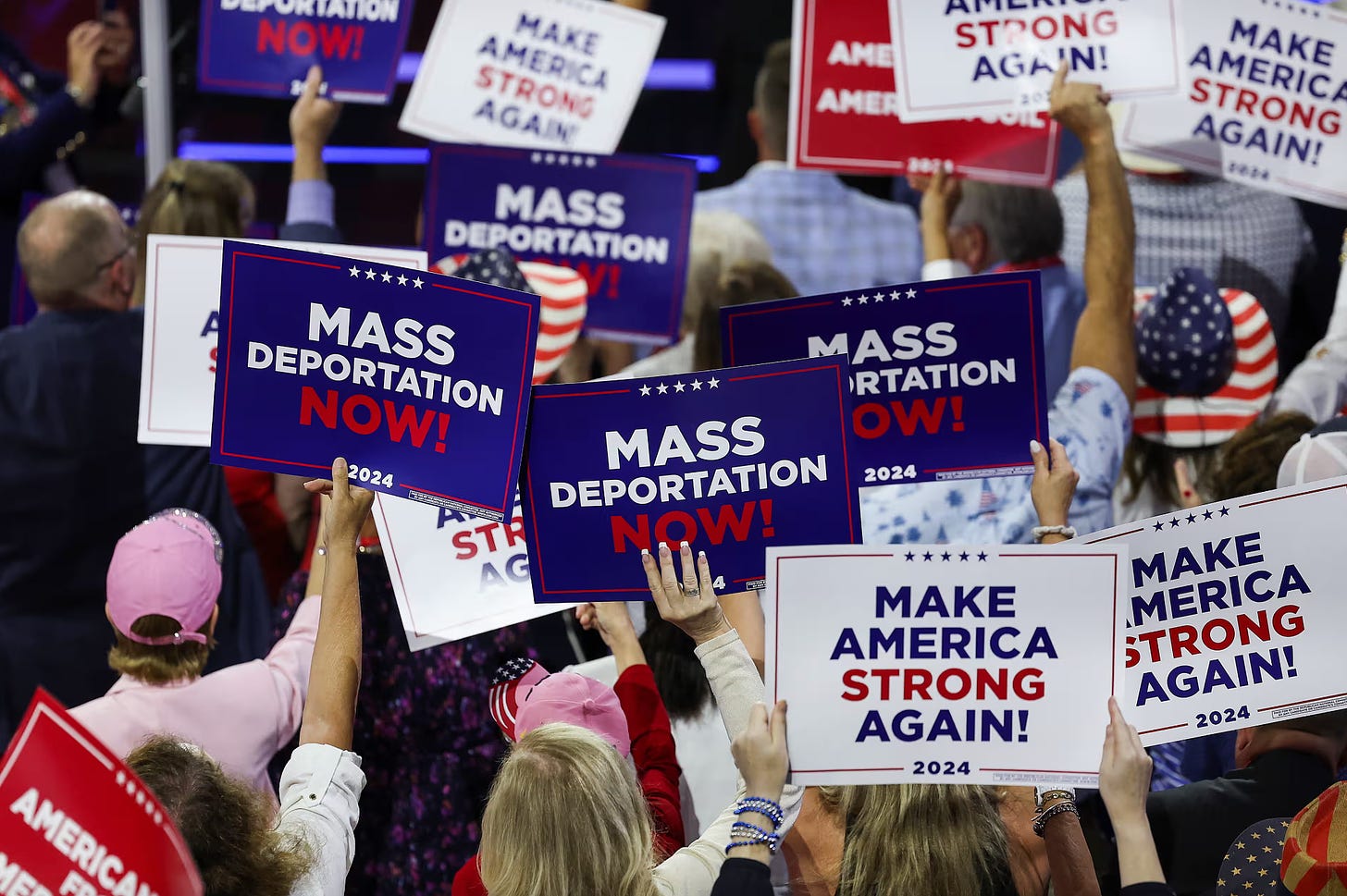
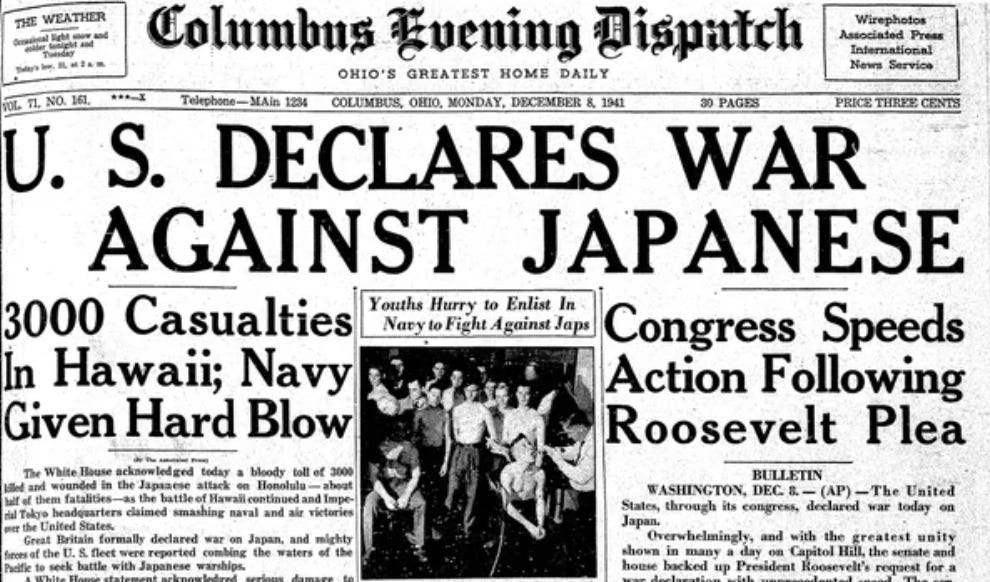
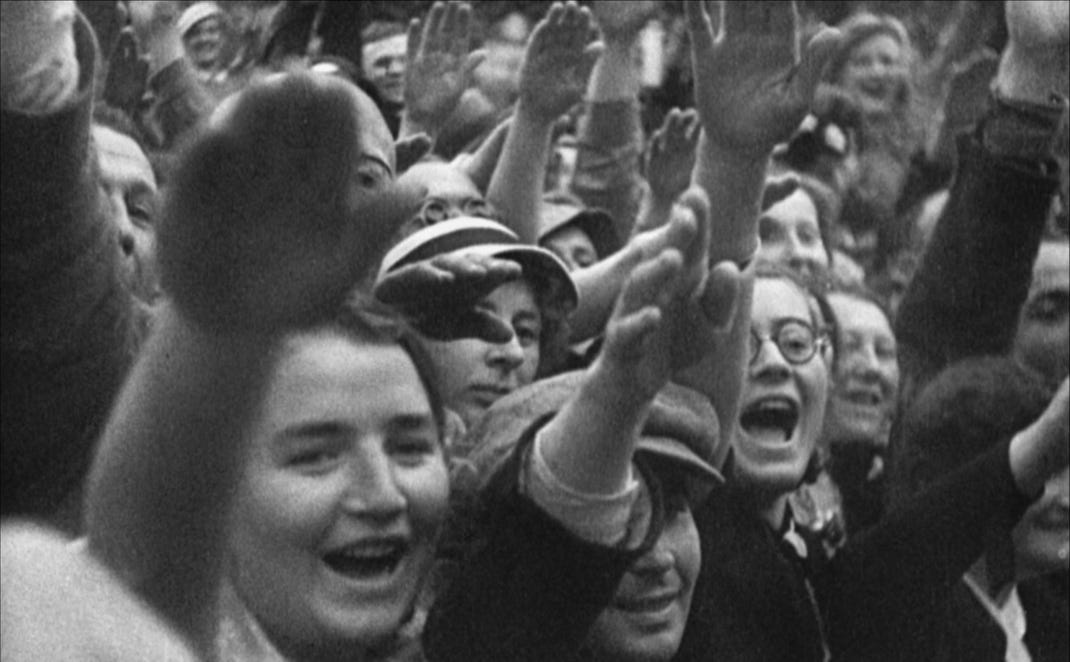
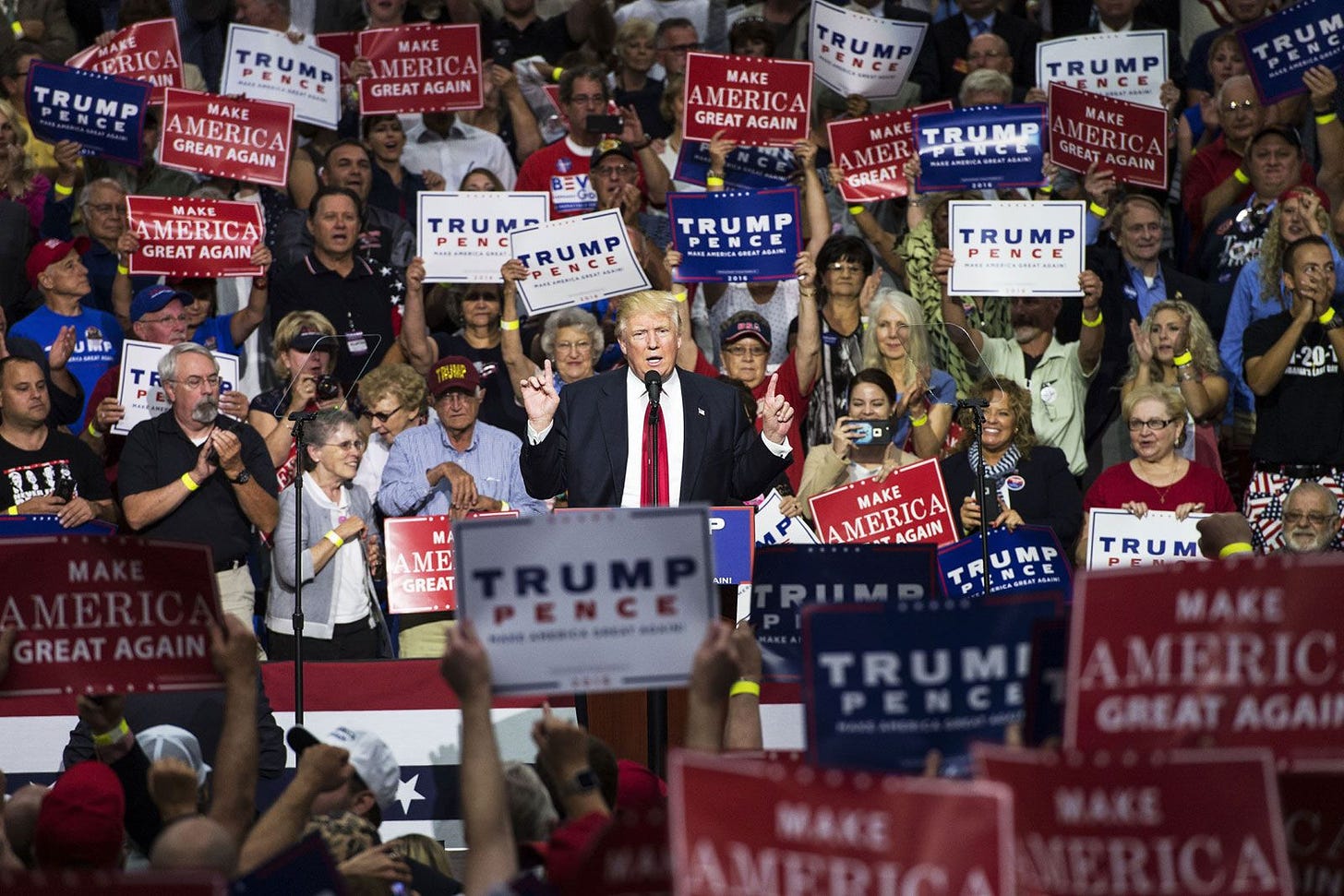
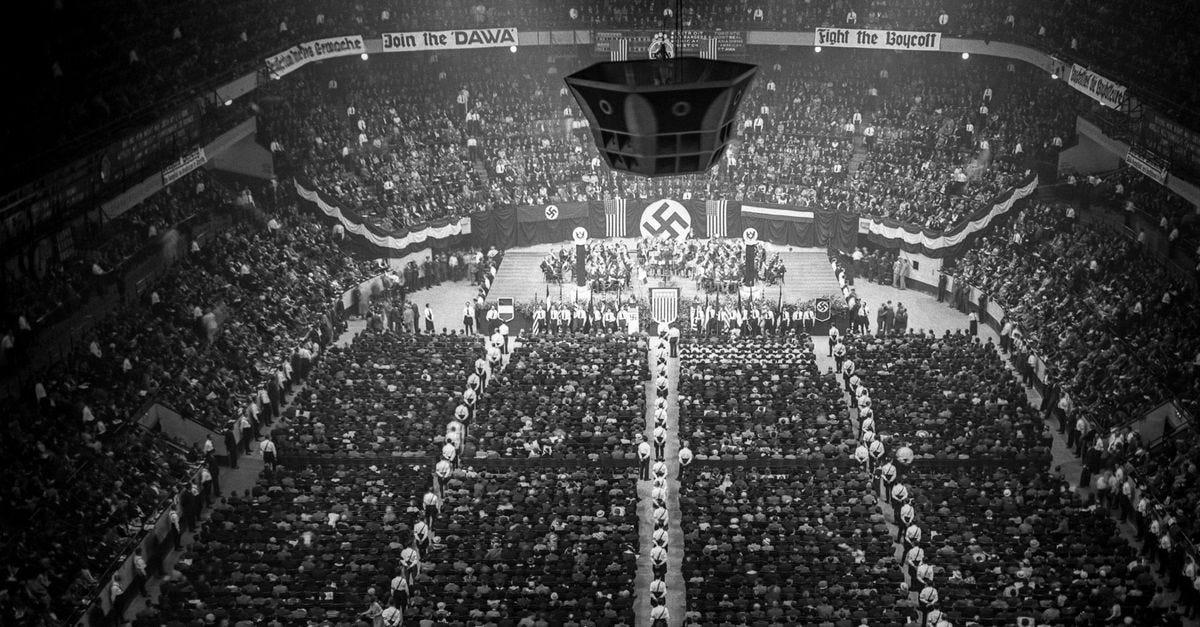
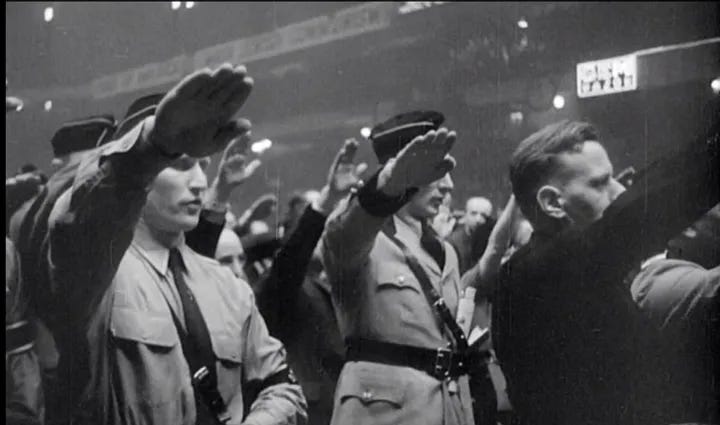
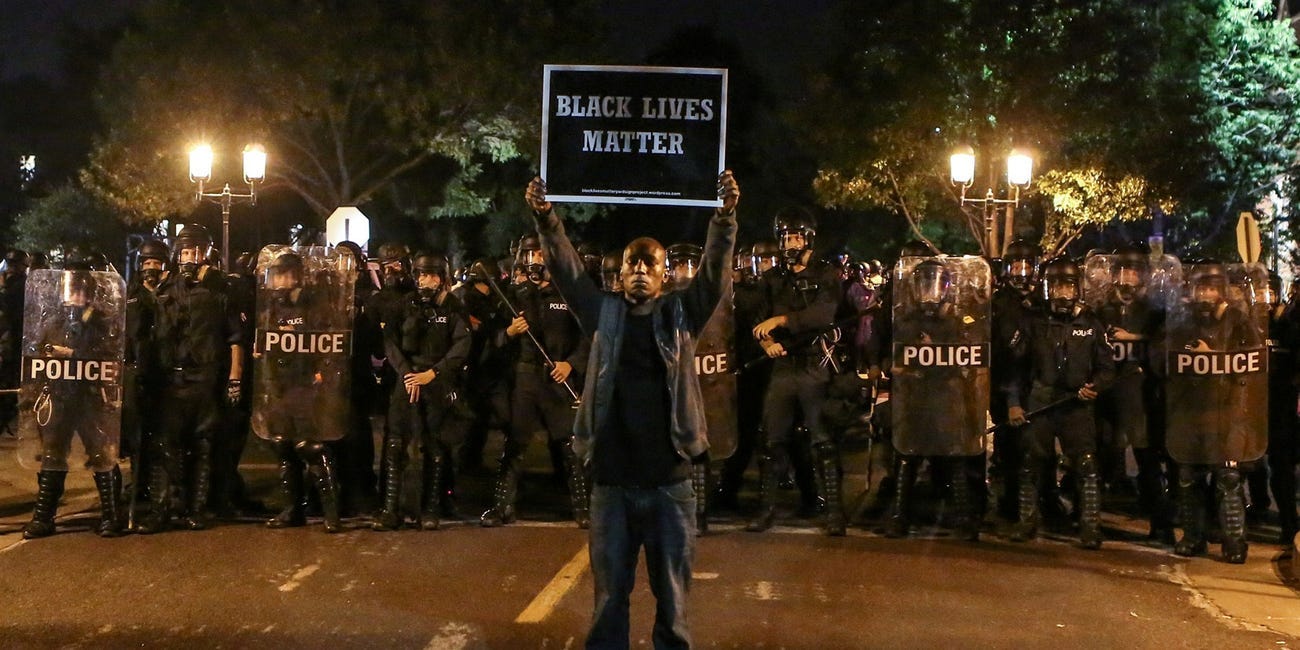

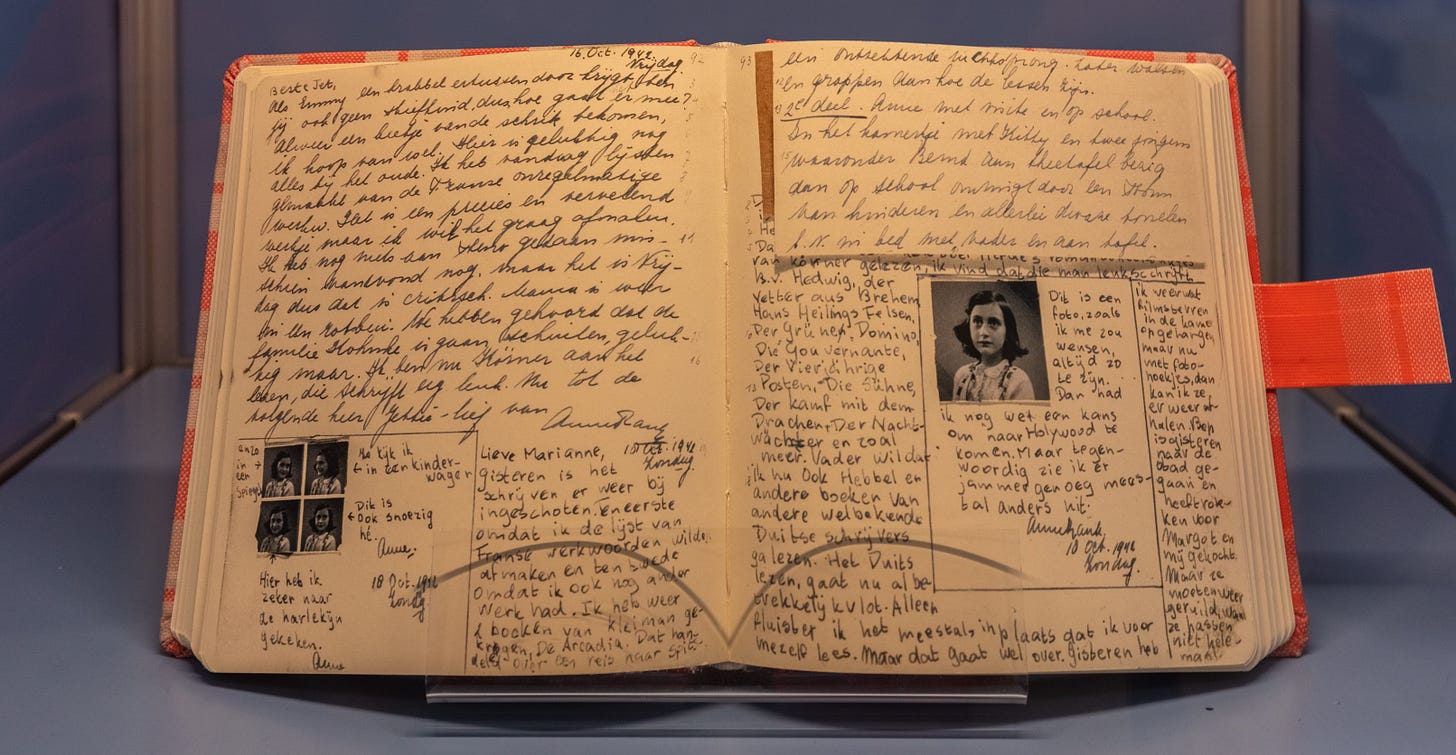
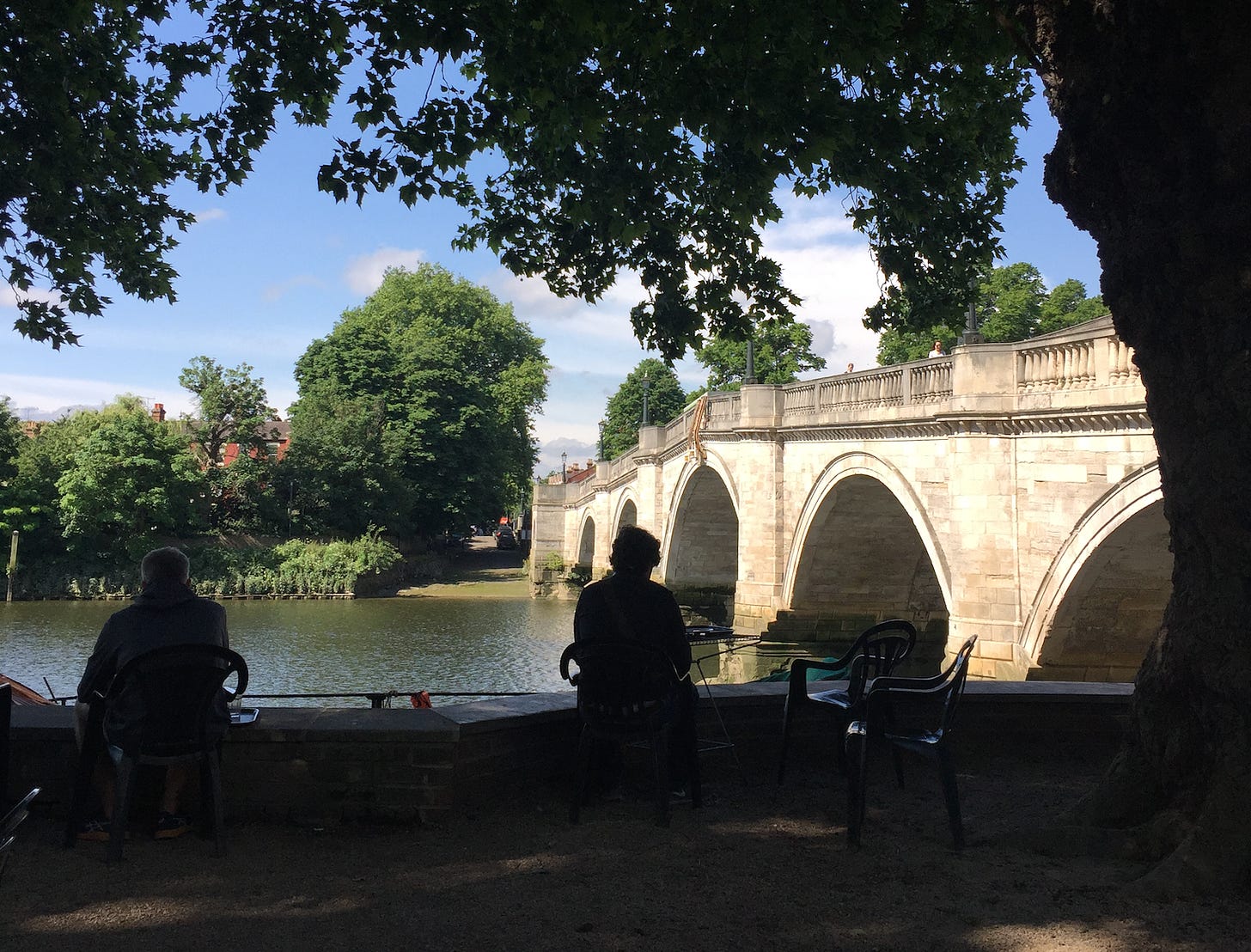
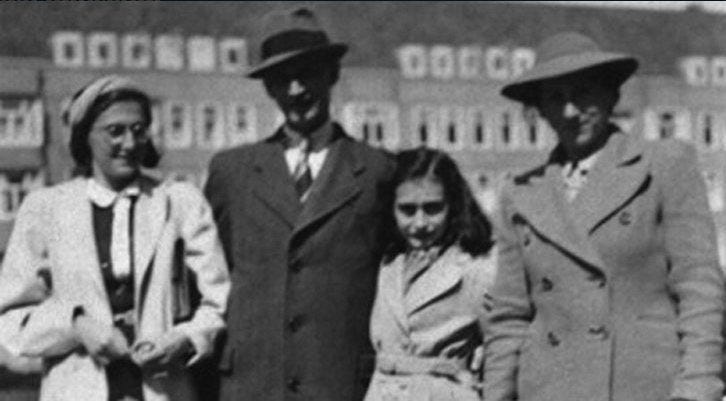
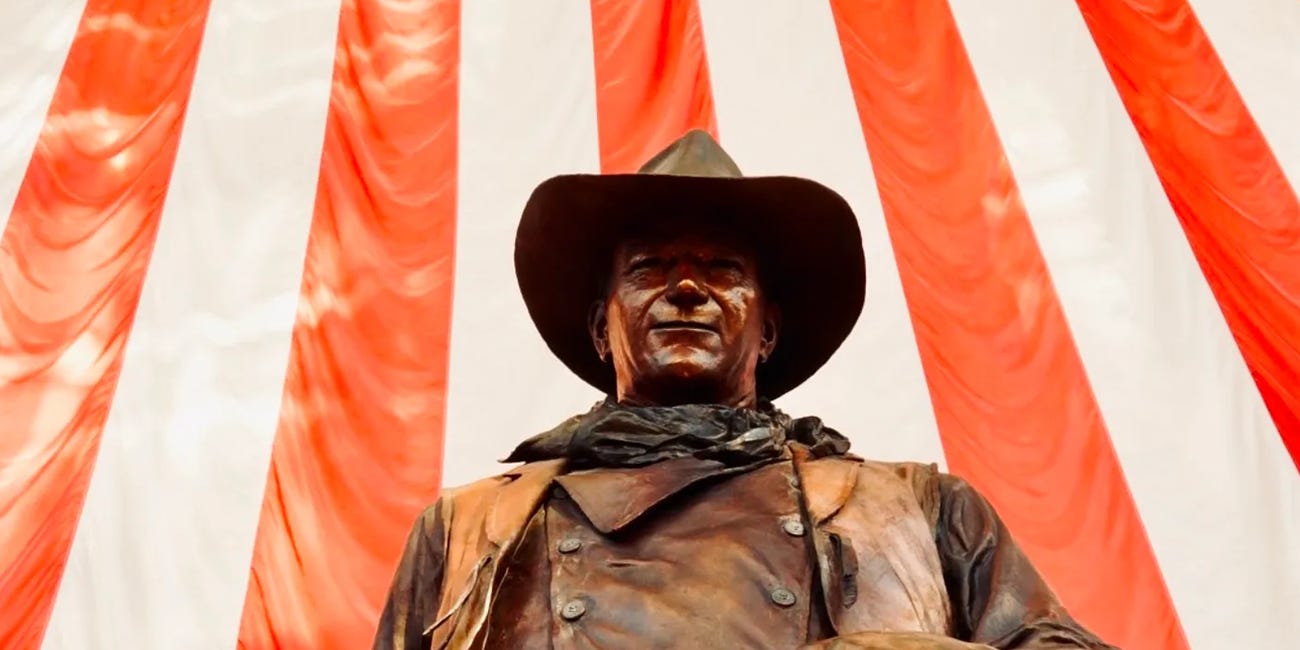
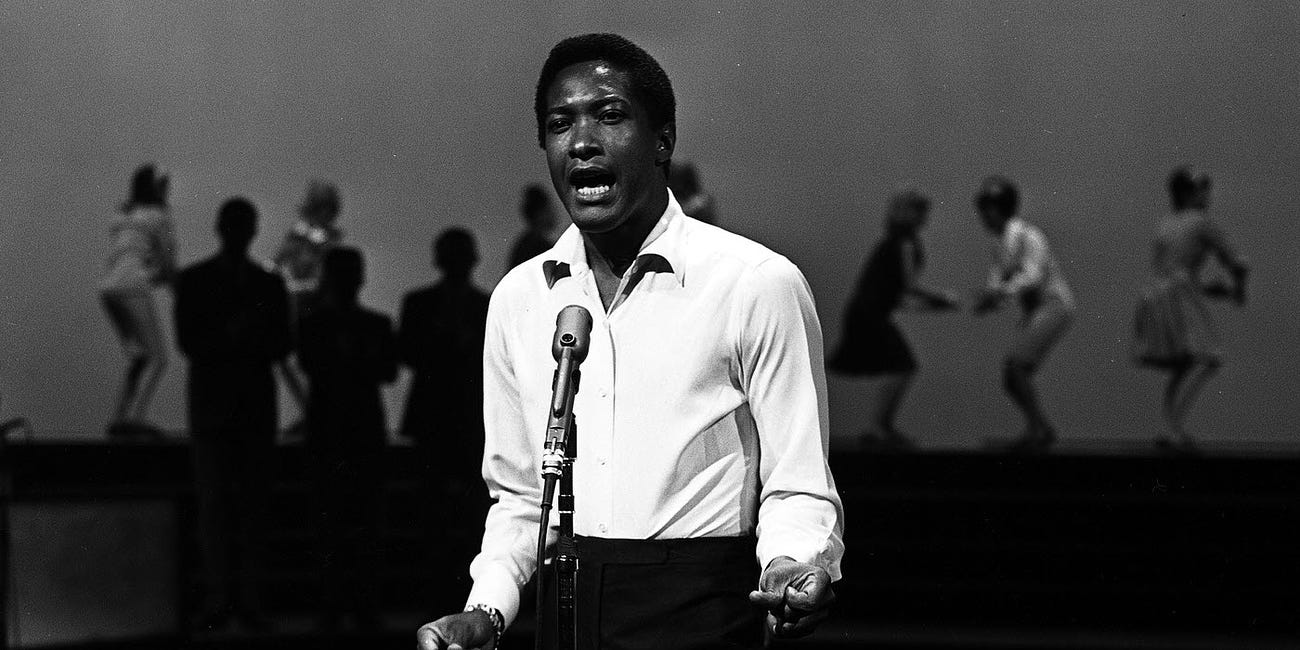
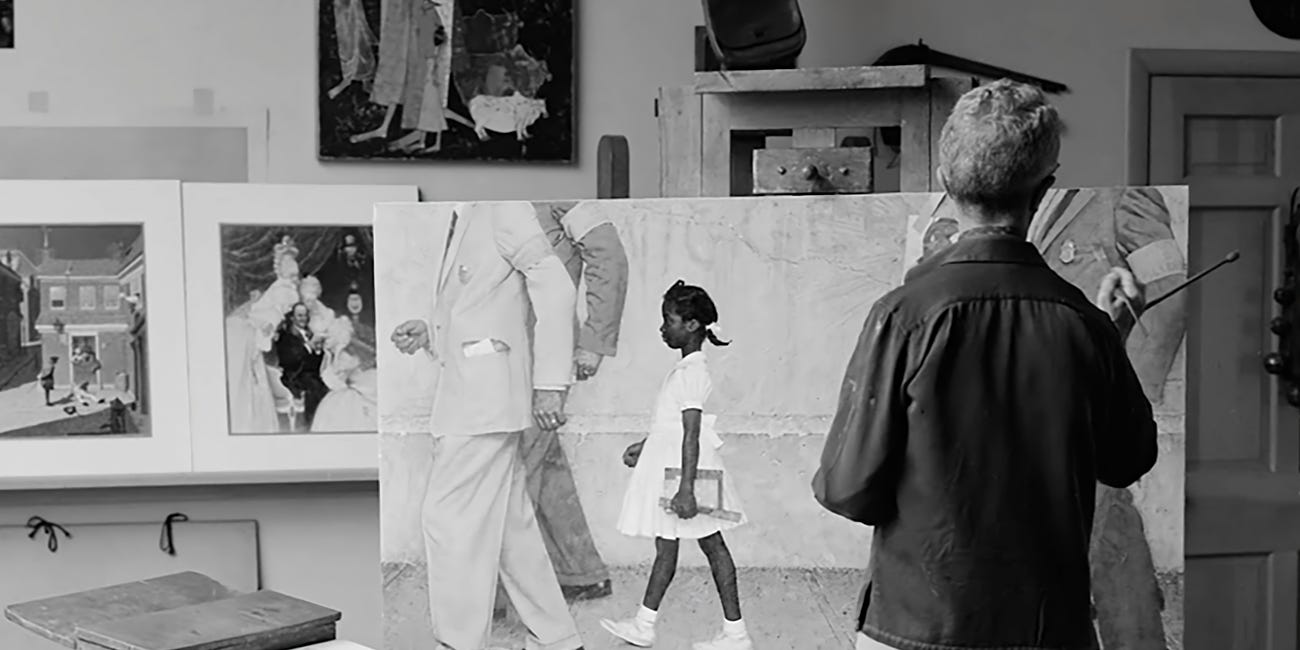
Your retelling and comments about Anne Frank and her family touch me very deeply because both my mother and aunt survived the holocaust. My mother was separated from her parents, who were shot and killed, and she endured a 'labor' camp. After the camp was liberated she met my father, a WWII veteran, in Sweden and they married and immigrated to the U. S. Both had died by 2017.
My aunt, who is 96 years old, often speaks with me by phone. She abhors DJT, and knows that his father was a Nazi sympathiser and they refused to rent to non-white applicants. She once said of DJT, "that apple didn't fall far from the tree". I replied, " that apple never fell from the tree!"
A moving piece of writing. I think you've put into words what many of us feel, but have a harder time saying.